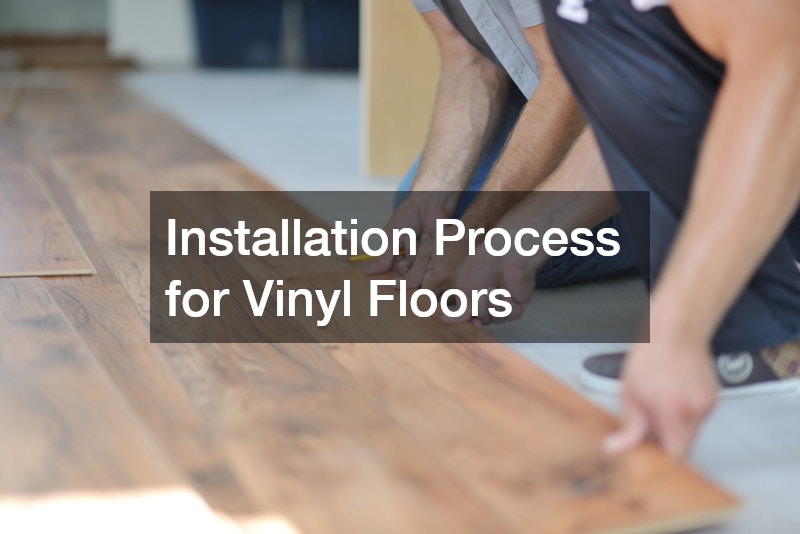Explore the intricate world of flooring options as we delve into how a professional flooring contractor can assist you in making the best choice for your space. Understand the benefits, considerations, and processes involved in transforming your floors. Whether you prefer the timeless elegance of hardwood or the modern versatility of vinyl, selecting the right flooring is a crucial step in revamping your home’s aesthetics.
Benefits of Hardwood Flooring
Hardwood flooring boasts a timeless elegance that enhances the aesthetic appeal of any home. Its durability is unmatched, capable of withstanding heavy foot traffic while maintaining its beauty for decades.
Moreover, hardwood floors can significantly increase property value, making it an investment that pays dividends in the long run.
The natural warmth and charm of hardwood create an inviting atmosphere, making spaces feel more open and comfortable. Each type of wood comes with a unique grain pattern, allowing homeowners a vast array of choices to reflect personal style. Additionally, hardwood flooring is known for its eco-friendliness, being sourced from sustainable forests with efforts towards renewing and managing natural resources.
Considerations for Hardwood Installation
Despite their numerous advantages, hardwood floors require careful consideration before installation. The environmental impact of sourcing wood is a concern, prompting many to choose certified sustainable materials. Moreover, the cost of hardwood flooring can be prohibitive for some, making it essential to weigh the investment against budget constraints.
Installation of hardwood floors demands precision and expertise, often necessitating the involvement of a seasoned flooring contractor. The process is time-consuming, requiring proper preparation, such as acclimating the wood to the room’s humidity levels. Regular maintenance, including refinishing and cleaning, is crucial to preserve the wood’s luster and prevent damage.
For homeowners with pets or small children, the susceptibility of hardwood to scratches may be a drawback. Additionally, exposure to moisture can cause warping, making it less suitable for areas like basements and bathrooms. Despite these considerations, the enduring appeal of hardwood floors makes them a worthwhile option for many.
Comparative Analysis: Hardwood vs. Vinyl
When weighing the choice between hardwood and vinyl flooring, several factors come into play. Hardwood offers a natural aesthetic that vinyl strives to emulate with varying degrees of success. However, vinyl’s affordability makes it a compelling alternative, especially for homeowners on a budget.
Vinyl flooring excels in areas where moisture is prevalent, such as kitchens and bathrooms, due to its water-resistant properties. In contrast, hardwood’s vulnerability to moisture can limit its use in such environments. The installation process for vinyl tends to be quicker, reducing labor costs and time compared to hardwood.
Advantages of Vinyl Flooring
Vinyl flooring has surged in popularity due to its numerous advantages, making it a highly attractive option for homeowners. Its affordability is a major driving factor, allowing for stylish updates without breaking the bank. Vinyl’s design versatility enables it to mimic the appearance of more expensive materials, such as hardwood and stone.
The ease of maintenance with vinyl flooring attracts busy homeowners who desire low-upkeep living spaces. Its resistance to scratches and moisture ensures it can withstand high traffic and wet areas, maintaining its quality over time. Vinyl’s softer underfoot feel compared to harder surfaces, such as tile, adds comfort to household walkways.
Additionally, vinyl offers sound-dampening qualities, which can contribute to a quieter living environment. Innovations in vinyl plank flooring have improved its realism and durability, further broadening its appeal. With advancements in technology, the installation process of vinyl has become more user-friendly, appealing to DIY enthusiasts and reducing installation costs.
Installation Process for Vinyl Floors
Installing vinyl flooring is a straightforward process, often completed with minimal effort and time. Most vinyl planks are designed with a click-and-lock mechanism, simplifying the installation for professionals and DIY enthusiasts alike. The subfloor preparation is crucial, requiring cleanliness and minor leveling to ensure a smooth application.
Vinyl flooring’s flexibility allows for installation over existing floors, often eliminating the need for adhesive, which reduces toxic emissions. This makes the installation not only simpler but more eco-conscious, aligning with growing environmental priorities. For larger spaces or complex layouts, consulting a flooring expert can ensure an efficient and aesthetically pleasing installation.
While installation is generally uncomplicated, attention to detail is necessary to achieve a seamless look. The quick installation time allows for immediate use of the space, minimizing disruptions to daily life. Overall, the ease of installing vinyl makes it a preferred choice for those keen on fast home improvement projects.s.
Consultation with a Flooring Expert
The role of a flooring contractor is instrumental in making an informed flooring decision. With their expertise, they offer detailed insights into material suitability, durability, and aesthetic compatibility. A contractor can provide samples, allowing you to visualize options in the context of your existing home décor.
Summarizing the insights presented, it becomes clear that flooring choices necessitate careful thought and expert guidance. Whether you lean towards the timeless allure of hardwood or the contemporary practicality of vinyl, each has unique advantages to offer. Partnering with a flooring contractor can simplify the decision-making journey, ensuring your home’s new floors perfectly align with your needs and preferences.


